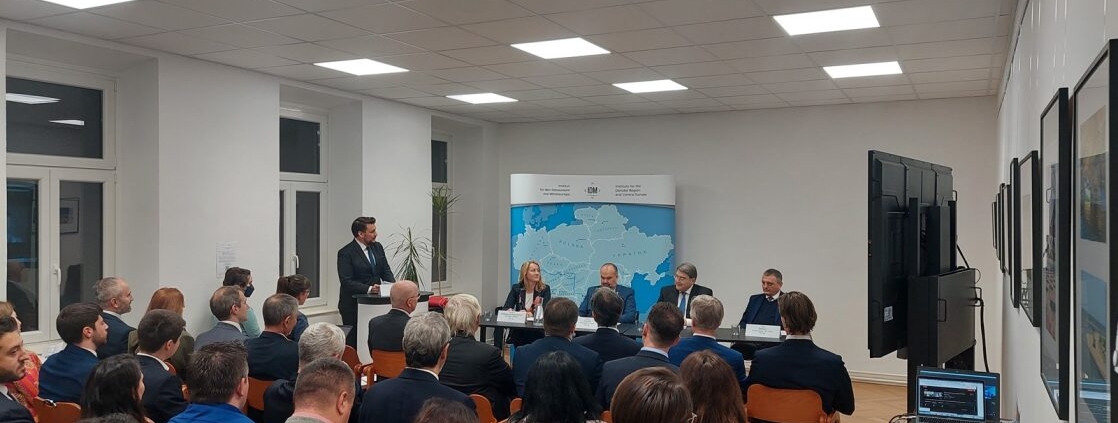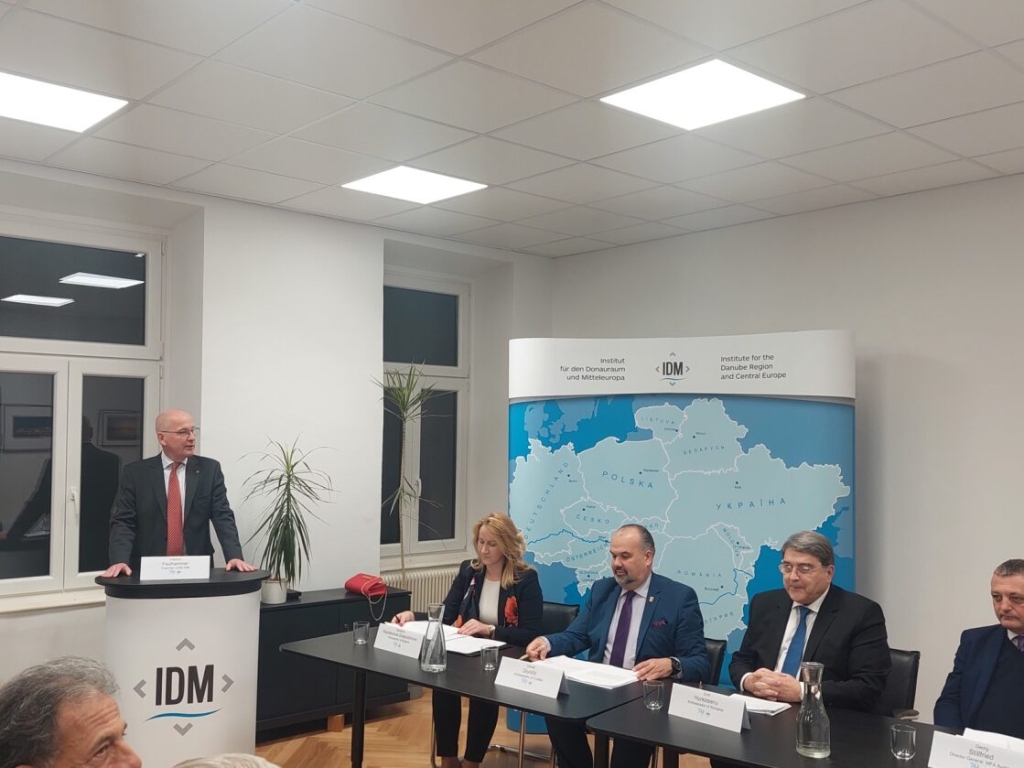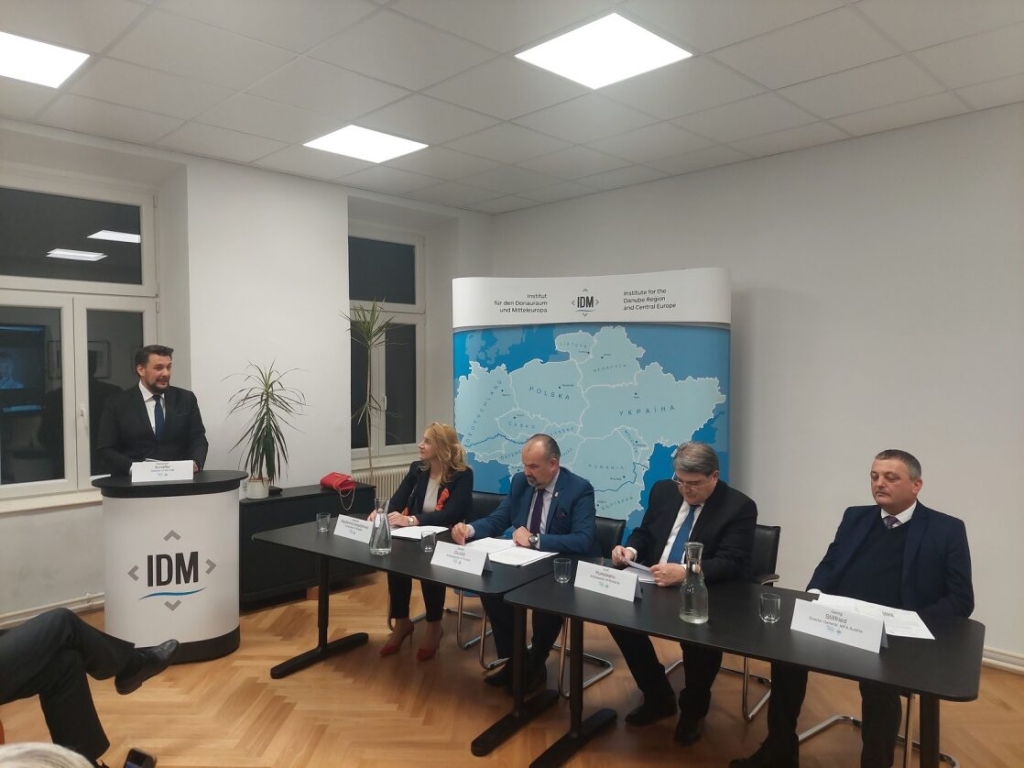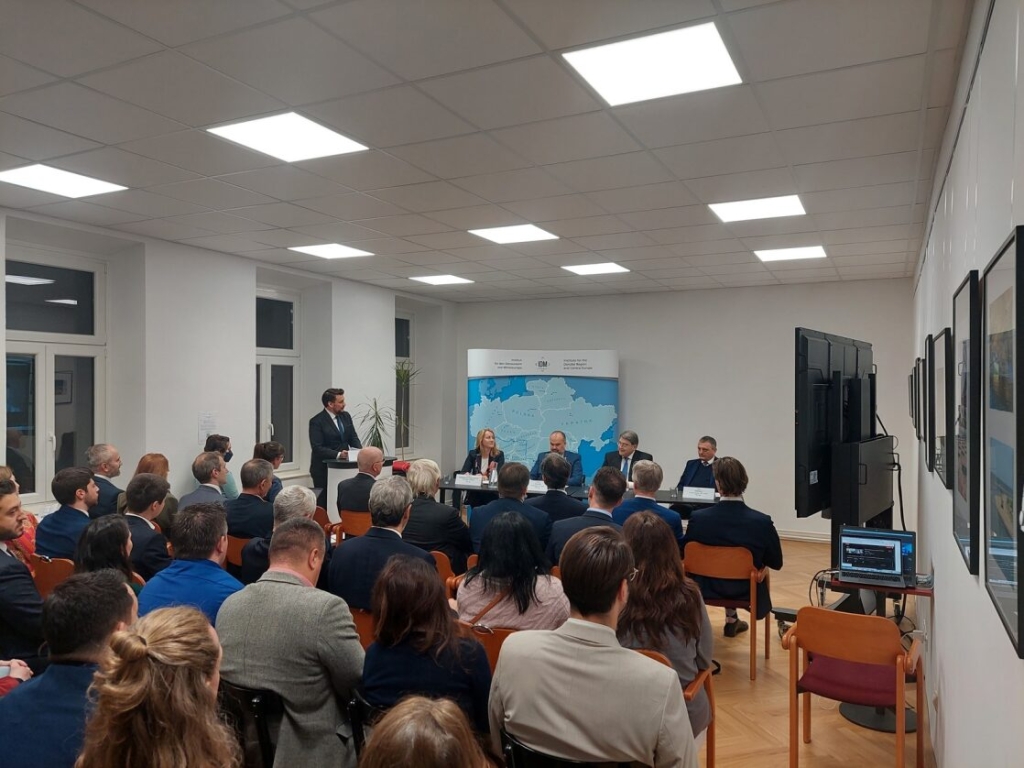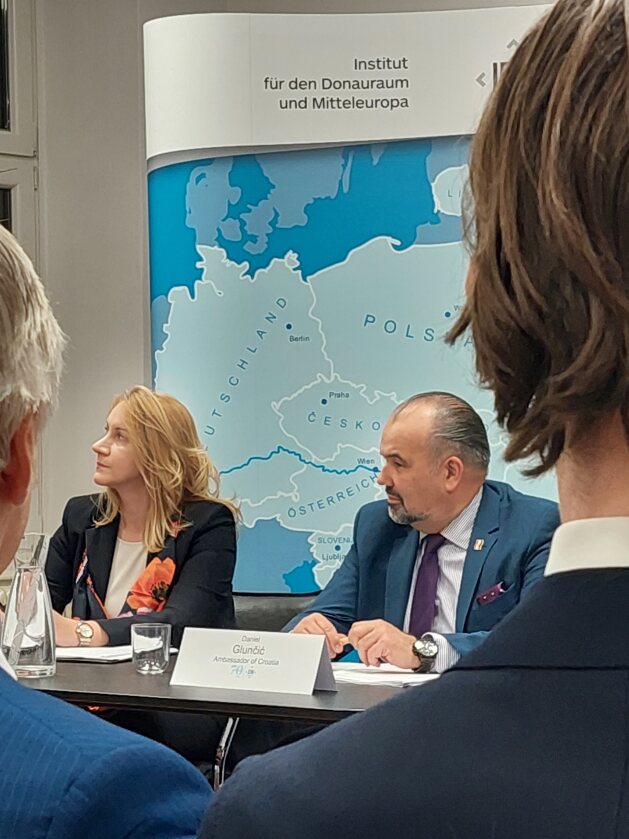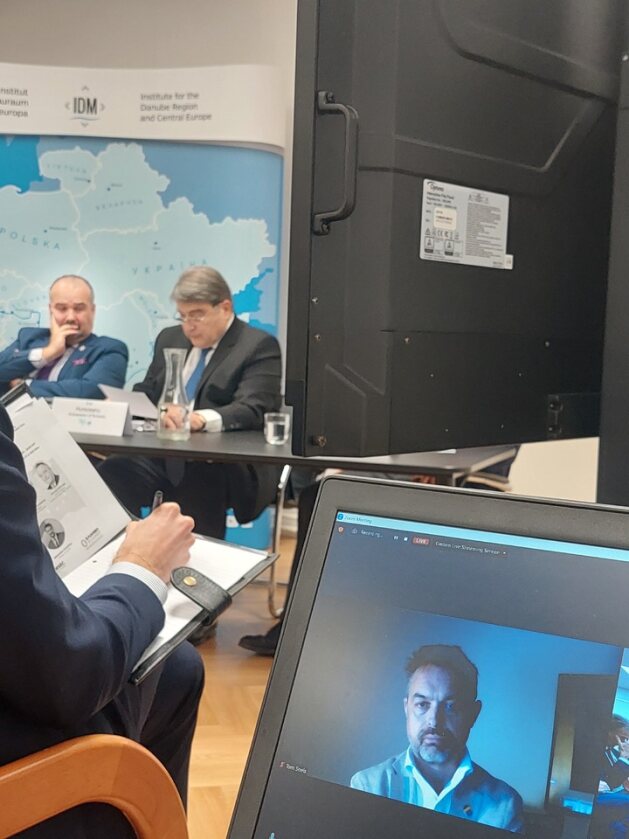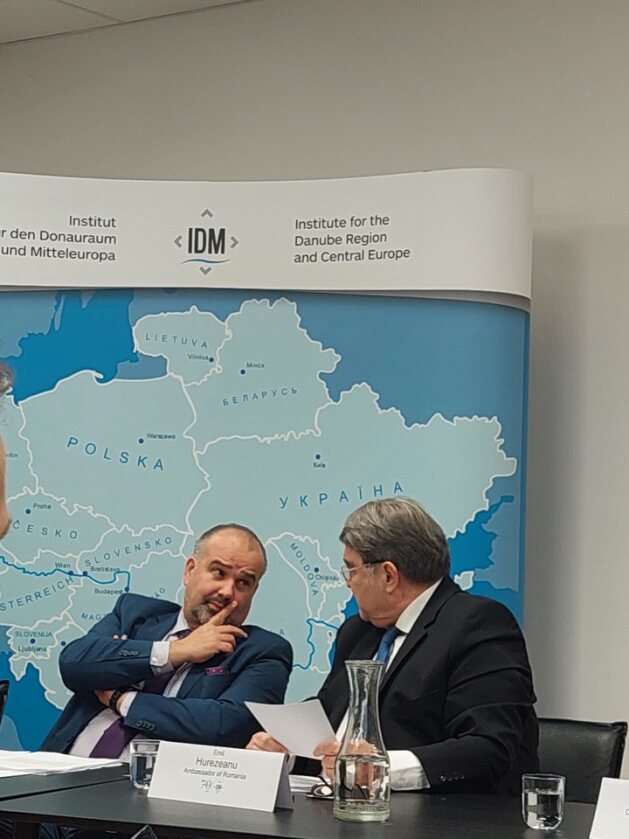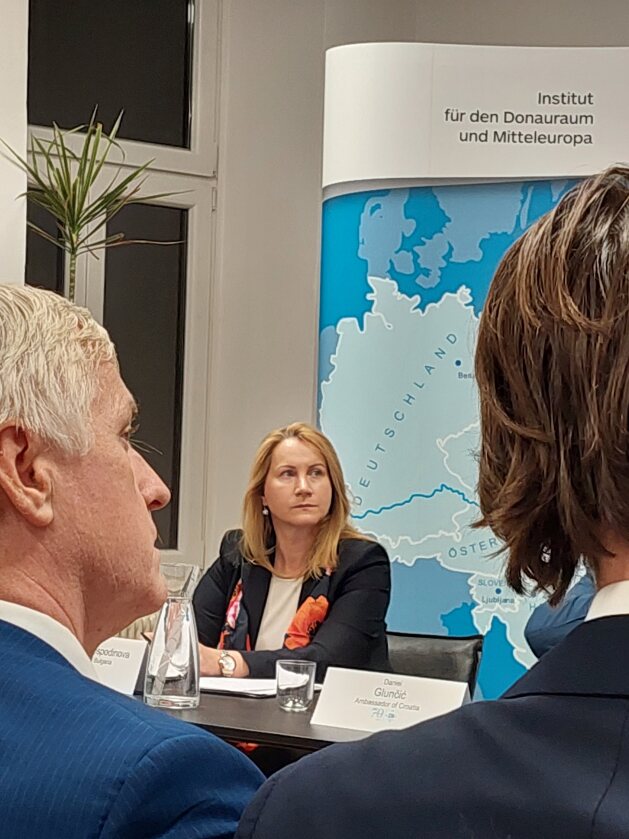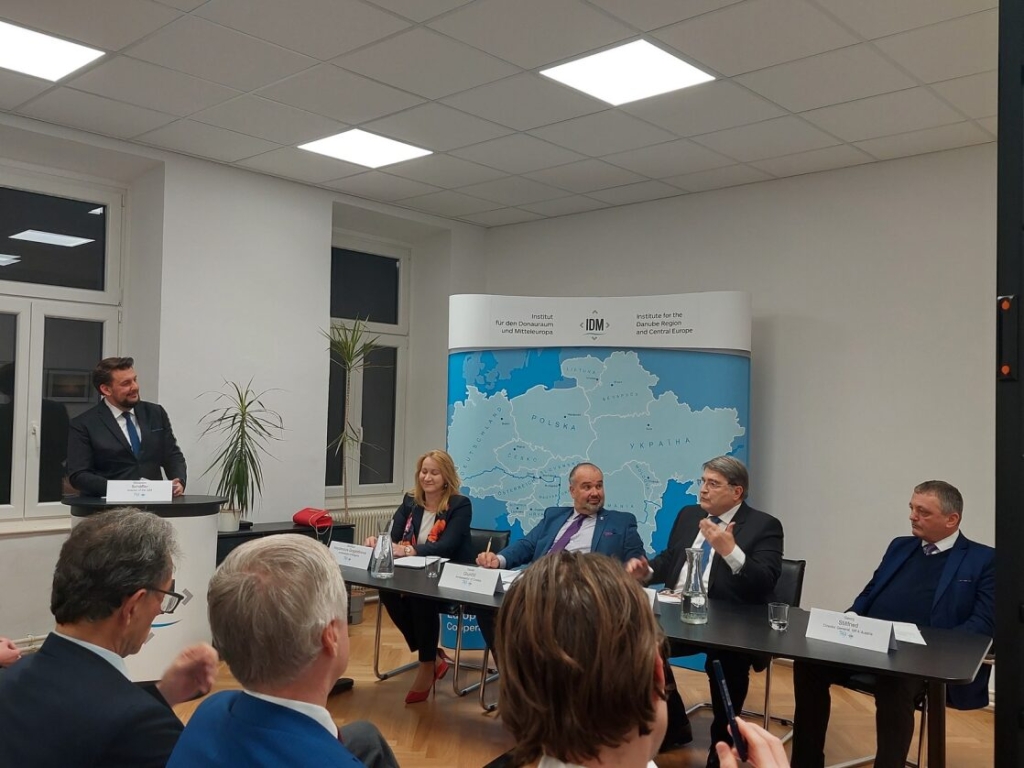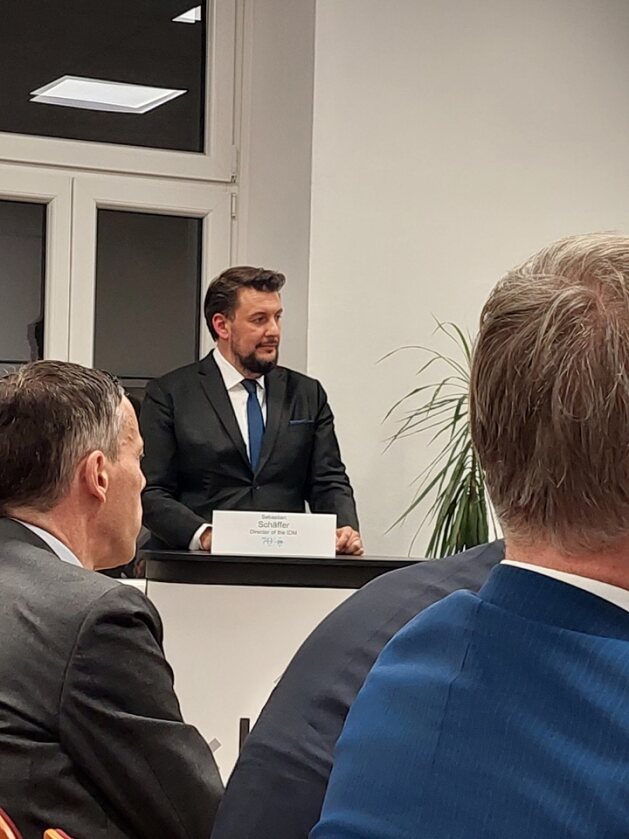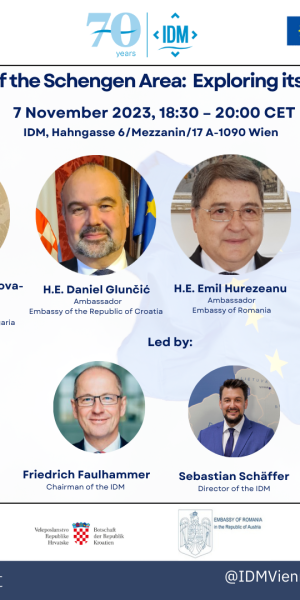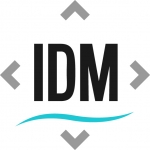A Summary: The Schengen Area Enlargement: In Need of a Constructive Solution
At the beginning of December, the Council of the European Union is expected to hold another vote on the accession of Romania and Bulgaria to the Schengen Area. Ahead of this, the IDM organized a high-level discussion on the future of the Schengen Area at its premises in Vienna, exploring the possibility of enlargement. The panel featured a selection of distinguished speakers: H.E. Daniel Glunčić, Ambassador of the Republic of Croatia; H.E. Emil Hurezeanu, Ambassador of Romania; H.E. Desislava Naydenova-Gospodinova, Ambassador of the Republic of Bulgaria; Tom Snels, Head of Unit, Directorate-General for Migration and Home Affairs, Deputy Director-General in charge of Schengen & Internal Security, European Commission; and Georg Stillfried, Director General, Ministry of Foreign Affairs, Austria.
The discussion addressed the issues surrounding Bulgaria’s and Romania’s accession to the Schengen Area in light of the recent successful example of Croatia. While Croatia was admitted to the Schengen area as of 1st January 2023, Romania and Bulgaria are still waiting to join. For nearly a year, Austria has maintained its veto on their accession, and there have also been concerns expressed by the Netherlands.
One of the main reasons for Austria’s continued veto of the proposed Schengen enlargement is the multiple illegal external EU border crossings, which have put pressure on Austrian Schengen frontiers, as well as the issue of security. For example, three quarters of those arriving in Austria have not been registered before. Austria is not the only country that has concerns: It is worth noting that 11 member states have recently reinstated internal border controls.
There was no consensus among panellists as to what extent the Schengen zone has become dysfunctional, whether the expansion should happen before or after it is fixed, or whether it should be adjusted if all EU member states join. While many countries criticize the functioning of the border-free area, the Schengen zone attracts over six million travellers in one year, and only around 0.05%, a small but tricky proportion, arrive illegally.
Bulgaria and Romania have made significant progress in meeting the requirements for joining the Schengen Area. In view of this, accession is arguably a right, not a privilege. Moreover, the proposed enlargement is not merely a technical or symbolic issue but also has very practical implications, allowing students, workers and the transport sector to cross borders with considerably less delay, as well as reducing the pollution caused by long queues of vehicles at the borders.
The Schengen Area is one of the greatest achievements of European integration. Bulgaria’s and Romania’s accession would further promote this integration within the EU, paving the way for an effective joint external border management. While the timeline for an expansion of Schengen remains to be decided, there is still hope that a positive decision could be made at EU level by the end of the year. H.E. Daniel Glunčić stressed the idea of solidarity and the importance of supporting Europe, channelling national identity into the European idea.
These were some of the key points raised in the panel discussion “The Future of the Schengen Area: Exploring its Enlargement” held at the IDM in Vienna on 7th November 2023. The discussion was moderated by managing director Sebastian Schäffer. It was implemented within the project EUact2 “Towards Democratic and Inclusive Europe: EP Elections and Active Citizens Participation and Contribution” funded by the European Union.
The event was recorded and can be watched here:

